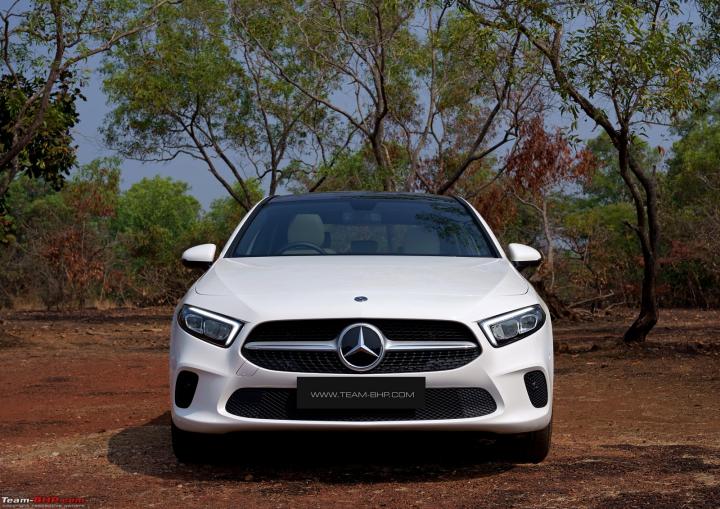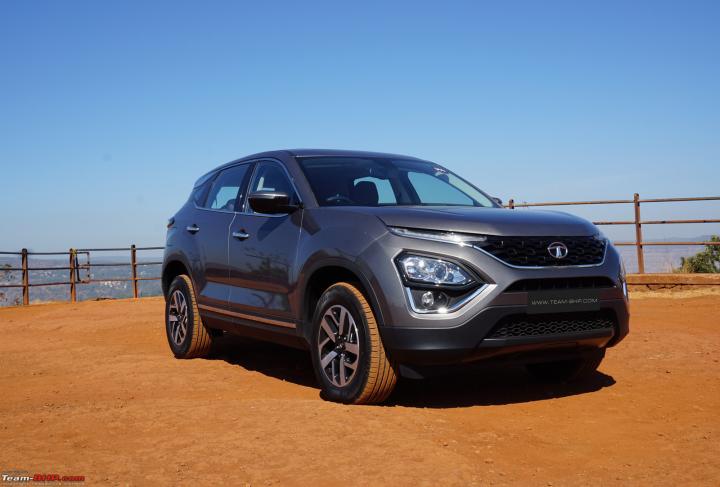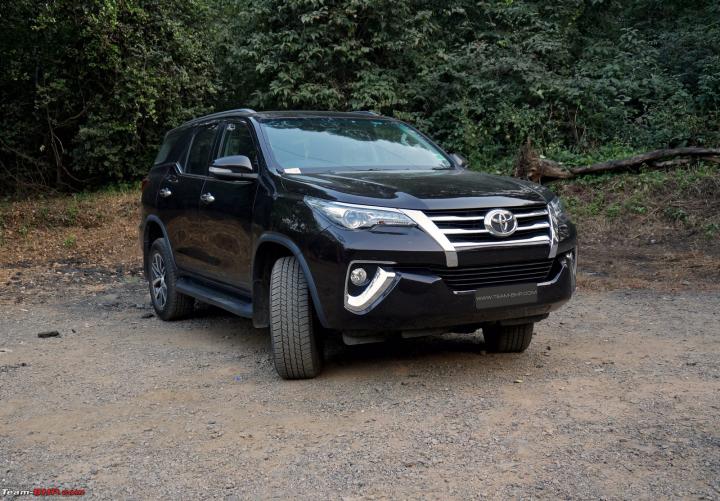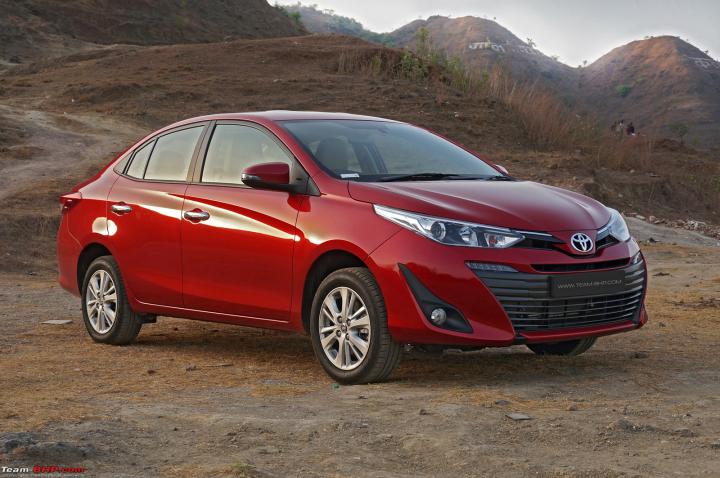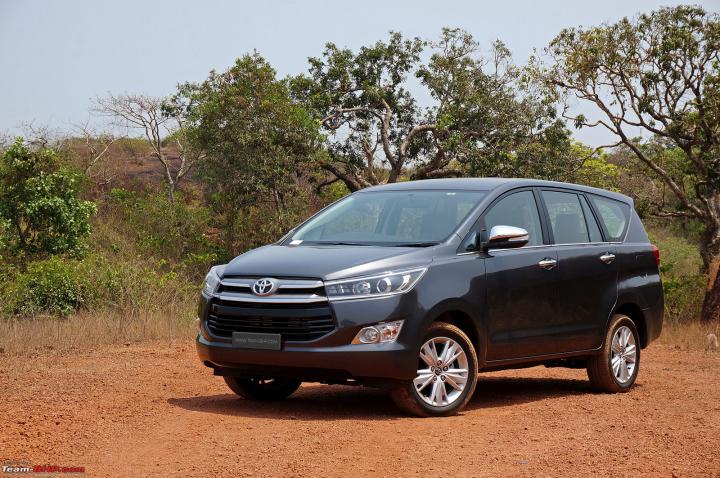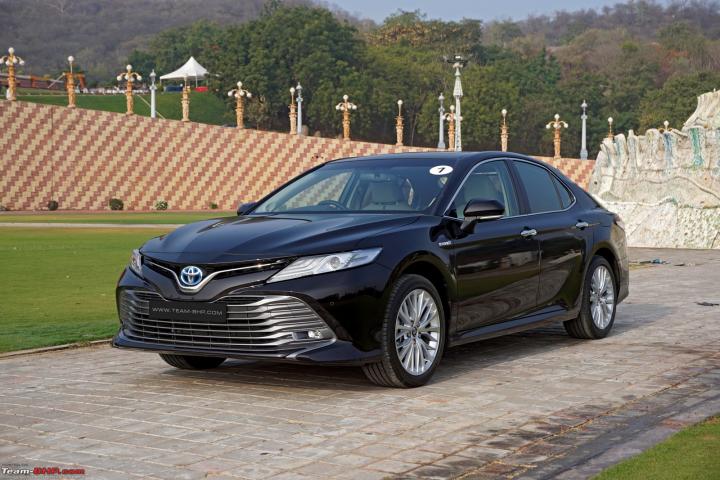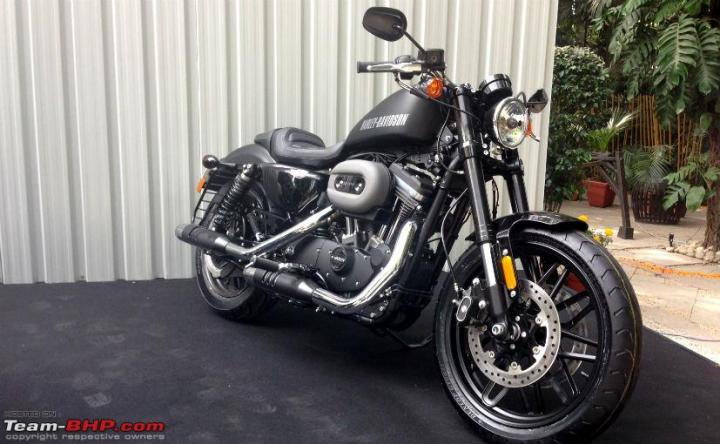News
Authorised dealers can claim input tax credit on demo cars
Input Tax Credit is the tax that a business pays on a purchase and that it can use to reduce its tax liability when it makes a sale.
The Bengal Bench of the GST Authority for Advance Ruling (AAR) has ruled that registered automobile dealers can claim input tax credit (ITC) on demo cars.
In its ruling, the AAR said, “The applicant is entitled to claim input tax credit charged and paid on inward supply of cars which are used for demonstration purpose and supplied further after a specified time period.”
The ruling was in response to an application filed by Landmark Cars East Pvt. Ltd, an authorized dealer of Mercedes-Benz, seeking a clarification on whether it was entitled to claim ITC charged and paid on the inward supply of cars from Mercedes-Benz India, used for demonstration purposes.
Input Tax Credit is the tax that a business pays on a purchase and that it can use to reduce its tax liability when it makes a sale. In other words, businesses can reduce their tax liability by claiming credit to the extent of GST paid on purchases.
In the case of sale of demo car, the outward supply would attract the same rate of tax as its inward supply, which is 28% GST, plus cess levied on the sale of cars. However, reimbursement received by the dealer from the manufacturer on loss suffered on sale of demo car would attract 18% GST.
Source: HT Auto
News
Nitin Gadkari proposes additional 10% GST on diesel vehicles
Gadkari believes that the industry should phase out diesel and transition to alternate fuels like LNG and bio-fuel.
Nitin Gadkari, Minister for Road Transport & Highway, has urged automakers to transition away from diesel-powered vehicles. Citing it as a hazardous fuel, the minister warned that the government would increase taxes if the industry doesn’t shift away from diesel fuel.
While addressing the 63rd annual SIAM convention, Gadkari stated that he would request Finance Minister Nirmala Sitharaman to impose a pollution tax in the form of an additional 10% GST on diesel vehicles and diesel gen-sets.
Gadkari believes that the industry should phase out diesel and transition to alternate fuels like LNG and bio-fuel. Currently, most commercial vehicles run on diesel, although CNG and electric buses are being widely used for public transport across India.
Diesel has been the fuel of choice among car buyers as well. Most carmakers offer diesel engine options in their SUVs, including homegrown brands like Tata Motors and Mahindra.
Source: ET Auto
- Tags:
- Indian
- Diesel engine
- GST
- Taxes
News
Combating rising fuel prices: Reduce fuel tax or income tax?
Rising fuel prices are hurting people heavily.
BHPian RaghuVis recently shared this with other enthusiasts.
I am starting something that might become a hot topic so request members to not stray and turn it political.
Whatever spectrum of political leanings all members might belong to, one thing has to be accepted by all fuel prices are hurting people heavily. The Ukraine war has further hurt all of us. With central governments and state governments busy blaming each other for the current situation, I keep wondering if we will ever get a solution.
So keeping that in mind, I have a simple question -- given a choice (unlikely but let's assume we get to be CM for a day), which option could you take?
Option 1: Reduce tax on fuel
Pros
- Instant relief for all.
- Reduction in central taxes will lower fuel prices further due to state tax calculation methods
Cons
- Revenue loss for the government. How much ever-corrupt politicians are, end of the day all these infra expenditures that we see today is from these source of revenues
- If the centre lowers taxes, states will increase to take the buffer and if states lower taxes, the centre would do the same.
- In a country like India, only 3 crores out of 135 crores pay Income tax. There is a huge section of the public who still do not pay (Illegally) any tax and still enjoy all the perks. There is a sentiment that why should they enjoy further perks?
Option 2: Reduce Income Tax
Pros
- Give relief to those who are paying taxes and not evading. Gives a sense of content to the tax-paying public that their contributions are being acknowledged.
- Lowering tax slabs might help more people to start declaring their assets.
Cons
- A huge section of Indians don't pay taxes. So, not much relief for them.
- Corporates/Businessmen will NOT be happy.
So, which choice would you take?
Here's what BHPian Ragul had to say on the matter:
SuSwamy used to talk about the abolishment of Income Tax but it has its own challenges. I have a slightly different idea. Currently, we have a regime of double taxation - you pay tax on salary, then you pay tax on bank interest, pay tax when you invest in MF and pay tax again when you buy petrol with money for which you have already paid the tax from your salaried income, this is very unjust and unfair.
I think Salaried personal Income Taxpayers should receive an annual credit refund from the IT department based on their IT returns where people submit a statement of some transactions for which GST has been paid using UPI or other electronic means (incl., payments at fuel pumps). Thus if your total GST payments amount to 50k in a year and you have paid Income Tax of say 2lacs (just a hypothetical number) you are entitled to a GST refund of say 30k based on some calculations assuming a non-zero tax regime. Successive governments can revise the calculations to provide added benefit as the state of the economy and financial situation permits over the coming decades. To begin with, this benefit can be provided only to the lowest Income Tax slab bracket group to make their life easier, or only up to a limit under the 1st slab, that all taxpayers can take advantage of.
The calculations and formula could be transparent with a set format and form for listing all GST payments for the financial year, making it easy for taxpayers when they file their returns.
Here's what BHPian mayankk had to say on the matter:
As a minority in India, being an income taxpayer, I say, drop the IT rates. Why should only I, in a minority, suffer for the sake of non-taxpayers. Fuel tax is universal, it will affect everyone. Raise it the hell away! Eventually, people will realise they're trying to store water in a sieve. If 9 Cr IT payers shout about tax, no one will listen. 130 Cr shouting will definitely bring down castles. Maybe that will drive authorities to take care of spending rather than collection.
Here's what BHPian wildsdi5530 had to say on the matter:
To put things in the right perspective,
If the tax on fuel is reduced/ abolished, the revenue deficit will have to be recovered from Income Tax. Unfortunately even if increased to ~100%, that may not make much of a mark.
It Income Tax is reduced/ abolished, the coffers will not be really affected. maybe a 50ps increase in fuel and other taxes. Politically it may not get any mileage, the 3% income taxpayers have no value in India. But ethically it would be the right thing to do. This double taxation at source and exit should go.
Direct taxes, which comprise income tax paid by individuals and corporate tax, came in at Rs 14.10 lakh crore from April 2021 to March 2022. Now a huge chunk of this would be given back as a tax refund. And corporate taxes though the lower rate is still a big chunk. So Probable revenue after deductions from personal Income Tax is probably 2 Lakh Cr.
The collections on petrol and diesel rose to ₹2.94 lakh crore in the first 10 months of the current fiscal (2020-21) according to information furnished by Minister of State Anurag Singh Thakur.
He said taxes collected on petrol, diesel and natural gas as a percentage of total revenue have gone up from 5.4 per cent in 2014-15 to 12.2 per cent this fiscal.. This statement is considering only the central tax component. Add State taxes and excise and cess, etc. the amount could easily cross 10 Lakh Cr.One big disadvantage of removing Income tax is that there is a huge infra and personnel who have nothing else to do, 46,000 babus in 2016. They will be out of a job and also so many IT buildings will have to be repurposed. They will definitely not like it. A fuel tax cut on the other hand is only a digital announcement.
Here's what BHPian deetee had to say on the matter:
Even a non-taxpayer pays a lot of indirect taxes. The taxpayer also pays those indirect taxes. Tax evaders (cash parties) also cannot escape paying some indirect taxes, especially fuel tax.
So, my vote would be to keep the fuel tax and reduce/remove income tax. After so many multilevel indirect taxes still asking to pay income tax is ridiculous.However, income tax is something controlled and collected by the central government while states have a share of fuel tax also. So, the lack of collaboration between central and state (even more so in opposition ruled states) will not make it practical to reduce either of the taxes.
End result - nothing is going to change unless the core system changes. Hopeless wishes these are.
Check out BHPian comments for more insights and information.
News
Gifting my brother an SUV; Will he be liable for taxes
I am a non-resident Indian planning to gift an SUV to my brother who is in Delhi, working in a MNC.
BHPian eternalck recently shared this with other enthusiasts.
Hi, I have a specific question which I could not find the exact location where to ask, so asking here.
I am a non-resident Indian planning to gift an SUV to my brother who is in Delhi, working in a MNC. No special occasion.
Will it attract tax liability for him? Anybody with any experience of a similar situation? Any recommendations appreciated.
Thanks!
Here's what BHPian Cyborg had to say on the matter:
Ask your brother to speak to a Chartered Accountant, there is a specific verbiage which needs to be used in the letter which you need to post/courier to him. It goes something like this “Out of natural love and affection to you as your brother, I am gifting you (free text)”. Also mention your bank name, address and account number in the letter.
Please check the exact wordings, your gift to him as a blood relative is tax free for him, whether it is cash to his bank account via transfer from your NRI account or in your case a car.
Cheers!
Here's what GTO had to say on the matter:
Here's what my CA says:
- For blood relation = real brother = gifts are exempt.
- No income tax if gift is received from brother.
Here's what BHPian r-a-s had to say on the matter:
Gifts received from relatives are exempt from tax. According to the IT Act, following persons would be considered as relative: spouse, brother or sister, brother or sister of the spouse, brother or sister of either of the parents, any lineal ascendant or descendent, any lineal ascendant or descendent of the spouse, spouse of the persons referred above.
Here's what matizcrazy had to say on the matter:
While I am no expert on tax laws, I remember being told by the salesperson that the NEFT / cheque has to be from the bank account of the person in whose name the car will be registered. In fact, they insisted the same for even road tax, registration payment; also they wanted PAN and Aadhaar of the potential buyer and owner.
High likelihood of attracting an IT notice, especially if the money is paid from a foreign source or NRE account.
Simpler to transfer the money to the brother (no tax restrictions) and let him buy it.
Check out BHPian comments for more insights and information.
News
Govt.: Increase localisation or face higher duties on parts
The 2021-22 Union budget proposes a 15% increase on import duty on automobile components such as drive transmissions, chassis, brakes and steering.
The Union Minister for Road Transport has stated that the government could hike custom duty on auto parts in a bid to promote domestic production.
The Minster was addressing the annual technology summit of the Automotive Component Manufacturers Association (ACMA), when he made the remark about increasing local production under the 'Atmanirbhar Bharat' initiative. It has been reported that the auto sector has been able to achieve a localisation level of around 70%.
The 2021-22 Union budget proposes a 15% increase on import duty on automobile components such as drive transmissions, chassis, brakes and steering. While announcing the budget, the Finance Minister had stated that these components are not critical for an automobile and are also available locally.
- Tags:
- Indian
- Import
- Taxes
- Local Production
News
Toyota releases a 2nd statement on its commitment to India
Earlier this week, we had reported that Shekar Viswanathan - Vice Chairman, Toyota Kirloskar Motor, had stated that the company won't scale up its operations in India due to the government's high tax regime. At the same time, he had clarified that Toyota has no plans to exit the Indian market.
Later, on the same day, Toyota had released a statement on its commitment to India. Now, Masakazu Yoshimura - Managing Director, Toyota Kirloskar Motor has given a statement on the matter.
Toyota Kirloskar Motor continues to be deeply committed to India and its national objectives. We have firm belief in the core strength of the country’s economic growth potential and are fully committed for continually working towards contributing to the economic development. Keeping in sync with our vision of ‘Grow India – Grow with India, during the past two decades of our presence in the country, we have worked tirelessly to invest in creation of a world-class talent pool and for building a strong competitive local supplier eco-system’ in line with the ‘Skill India” and the “Make in India” initiatives. Our operations in India are an integral part of our long-term global strategy. As part of these efforts, Toyota Group in India is targeting to invest over Rs. 2,000 crore in India in the coming years on technology and electrification, both for the domestic and the exports market. We reaffirm that TKM intends to make all efforts to promote and introduce newer, cleaner and world-class technologies and services in the market.
News
Toyota releases a statement on its commitment to India
Earlier today, we had reported that Shekar Viswanathan - Vice Chairman, Toyota Kirloskar Motor, had stated that the company won't scale up its operations in India due to the government's high tax regime. At the same time, he had clarified that Toyota has no plans to exit the Indian market.
Now, the company has released a statement on its commitment to India:
Toyota Kirloskar Motor would like to state that we continue to be committed to the Indian market and our operations in the country is an integral part of our global strategy. We need to protect the jobs we have created and we will do everything possible to achieve this. Over our two decades of operations in India, we have worked tirelessly to build a strong competitive local supplier eco-system and develop strong capable human resources. Our first step is to ensure full capacity utilization of what we have created and this will take time.
In wake of the slowdown that has been exaggerated by the COVID-19 impact, the auto industry has been requesting the Government for support to sustain industry through a viable tax structure. We remain confident that the Government will do everything possible to support industry and employment. We recognize the strong proactive efforts being made by the Government to support various sectors of the economy and appreciate the fact that it is open to examine this issue despite the current challenging revenue situation.
Our recent partnership with Suzuki in India on sharing technology and best practices are also in support of the “Make in India” initiative and Indian Government’s policy, and aim to enhance the competitiveness of both companies.
News
Toyota won't scale up India operations due to high taxes
“We won’t exit India, but we won’t scale up.”
Shekar Viswanathan - Vice Chairman, Toyota Kirloskar Motor, has stated that the company won't scale up its operations in India due to the government's high tax regime.
The taxes on cars and 2-wheelers are so high that companies are finding it difficult to expand. Many potential customers find it difficult to own a car and as a result, there is lower demand and factories are lying idle. This also means that fewer jobs are created.
Viswanathan further clarified that Toyota has no plans to exit the Indian market due to the higher taxes.
As per the current tax structure, the government levies up to 28% tax on motor vehicles. Based on the car's type, length or engine size, the government charges an additional 1-22% tax. The taxes on electric vehicles are currently 5%, which the government might raise once sales increase.
News
Govt. proposes duty cut for Harley Davidson bikes
As part of the ongoing trade talks with the US, it is reported that the Indian Government has proposed a new tariff classification for motorcycles with cylinder capacity exceeding 1,600cc. The revised tariff is expected to be in single digits.
The move comes after the US President expressed criticism of the harsh duties in India. Earlier, the duty on higher capacity bikes was reduced from 100% to 50%. India classifies motorcycles as per engine capacity - 75cc, 250cc, 500cc and 800cc or above. A new category for 1,600cc and above will be created.
India has also asked for a reduction in the H-1B visa fee as part of the trade talk.
- Tags:
- Indian
- Harley Davidson
- Import
- Taxes
News
Import duty on EV components lowered to 10-15%
The government of India has lowered the import duty on components for electric vehicles (EVs) from 15-30% to 10-15% from January 30, 2019. The move is aimed at encouraging local assembly of electric vehicles.
Completely knocked down (CKD) kits, which include disassembled battery packs, electric motor and braking system among other parts that are not mounted on the chassis will attract 10% duty, while pre-assembled packs will be charged 15% duty.
The Central Board of Indirect Taxes and Customs (CBIC) has classified EV components into a separate category with lower customs duty. On the other hand, customs duty exemption on battery packs for electric vehicles has been removed. As a result, battery packs for EVs will attract 5% import duty.
Source: Economic Times
Pages



